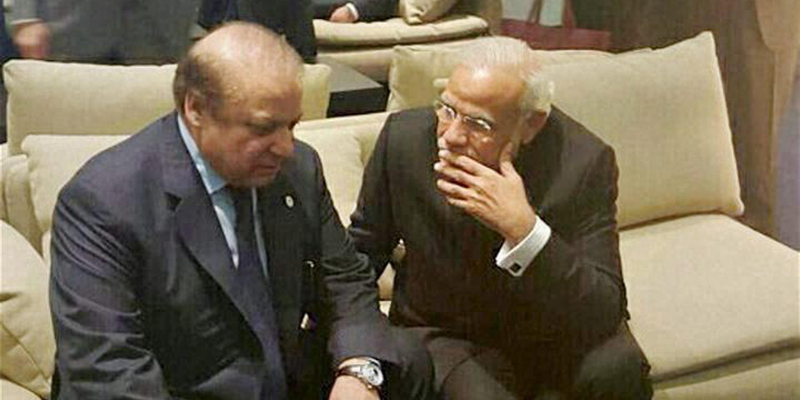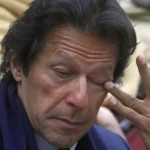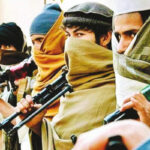‘You can fool all of the people for some time, and some of the people all the time, but you cannot fool all the people for all the time.’
In Afghanistan, Pakistan has been scapegoated for a while – tactical failures and strategic reverses are conveniently justified by blaming it on Pakistan. It is fashionable for our own intellectuals to join in the chorus and blame the infamous Establishment. At times, I feel that Pakistan would be a better place to live in and things would be so much more stable and peaceful if this establishment was taken out of the equation.
Well, in Kabul, at the least, the chickens have come home to roost – blaming Pakistan will not address the problem, as the public have begun to blame their incompetent government for the miseries that they are suffering and that is how it should have been. I certainly am not suggesting that our Establishment is exempt from critique, but that the critique, at the very least, be based on facts. If I were to blame our Establishment for anything, it would be incompetence and dwindling influence – they actually do not have the capacity to influence matters in Afghanistan or outside of it. In fact, they cannot even manage, dismantle or control or own Jihadi factions.
Afghanistan is suffering the consequences of an artificial government, a foreign occupation, a civil war, in which 60% of the rural areas are lost to the Taliban, and overbearing Indian influence using Afghan soil to set up proxies against Pakistan. With so much space lost within the country, why would Taliban militant factions be searching for safe havens elsewhere, especially when the fight is in Afghanistan? An odd Afghan is killed in Islamabad or assassinated in Peshawar and our people are up in arms. It is enough to be thrown up as evidence indicating the Establishment is involved. Pakistan being asked to facilitate the Doha talks is ignored, Pakistan being requested to bring the leadership to the table is another matter forgotten, that the world cannot move 3 million refugees after almost 40 years is a moot point and that the Durand Line remains a bone of contentions is another contradiction, that somehow it is only Pakistan’s responsibility to man the border from one side alone, a border that no one recognizes!!!
So, it is always Pakistan who is on the wrong?
Questions are asked, why are all our neighbors against us? Implicit in the question is that we must be at fault and the rational is that since everyone else cannot be wrong, it must be us.
Pakistan, is essentially a victim of narratives. We simply do not have one, we do not tell our story though we have one.
The world hears a viewpoint that is always hostile to Pakistan and that view point is further aggravated by our own patriots who give a fillip to the negative image of our own country. They think they are clever, that they have an out of the box opinion, that basking in the glory of rebelling against status quo would give them the claim to fame that they are in search of.
Well, let them now talk to those protesters in Afghanistan who are asking their government to step down, they may find the rebuttal to their accusations against the Establishment there.
When we talk of wars, it is universally accepted that there are wars of choice and wars of necessity. I know there will be some highly philosophical views that wars are never necessary, but nevertheless, these are neither in one’s control nor avoidable, and they are confronting nations as clear as day.
The Wars fought in Iraq, Libya, Syria are known as wars of choice – they were not necessary. However, if a hostile neighbor insists on ‘surgical strikes’, if another attacks Chaman, one should not expect the other cheek to be offered.
If there is an indigenous freedom movement in Kashmir, does one expect Pakistan to kiss and make up with India?
If the pending matters of Siachen, Sir Creek and Kashmir remain as they are, should we be expected to make overtures to India? Is this a realistic approach and a sensible one?
If Afghanistan, in its bilateral history with Pakistan, was the only nation in the world that refused to recognize Pakistan from the outset, that on numerous occasions laid claim to our territory upto the Indus and, at times, up to the coast in Baluchistan, that started the Greater Pushtunistan Movement, etc., and yet the onus of being friendly lies on Pakistan?
Even after accommodating over 3 million registered refugees, after supporting the Afghans against the Soviet Occupation? No, we are entitled to a response if it comes to that, and it may even lead to a war of necessity.
If we cannot avoid war, we shall fight it; that’s what nations do, they do not just roll over and die. Our conventional and nuclear capability rests on the principle of minimum deterrence, we do not have the wherewithal, nor the intent to invade others, but reserve the right to defend and protect ourselves.
So, should we even be denied this just so that a few drawing room analysts can make peace with India and Afghanistan at the cost of this country and it will only be at the cost of this country?
There still be others, who will squeak, It’s not the Establishment’s job to define National Security, and it is not but, having defined it at the appropriate level – it is the establishment that must implement it in accordance to policy defined, the expertise at hand and the authority invested within it.
‘Patriotism is supporting your country all the time, and your government when they deserve it’. Mark Twain.
Lt. General Tariq Khan (Retired), an erudite general from Pakistan’s Armored Corps and a decorated War Veteran, is an expert on critical issues related to Terrorism & Insurgencies. General Tariq Khan during the Battle of Bajaur, transformed and re-shaped Frontier Corps into a relentless fighting force and raised FC’s own special forces popularly known as SOG. Commanded and led major operations in FATA from the frontline, his model on counter-insurgency is still applied to this day.
Lt. General Tariq Khan (Retired) leads CommandEleven’s Board of Advisors as our Patron-in-Chief.








